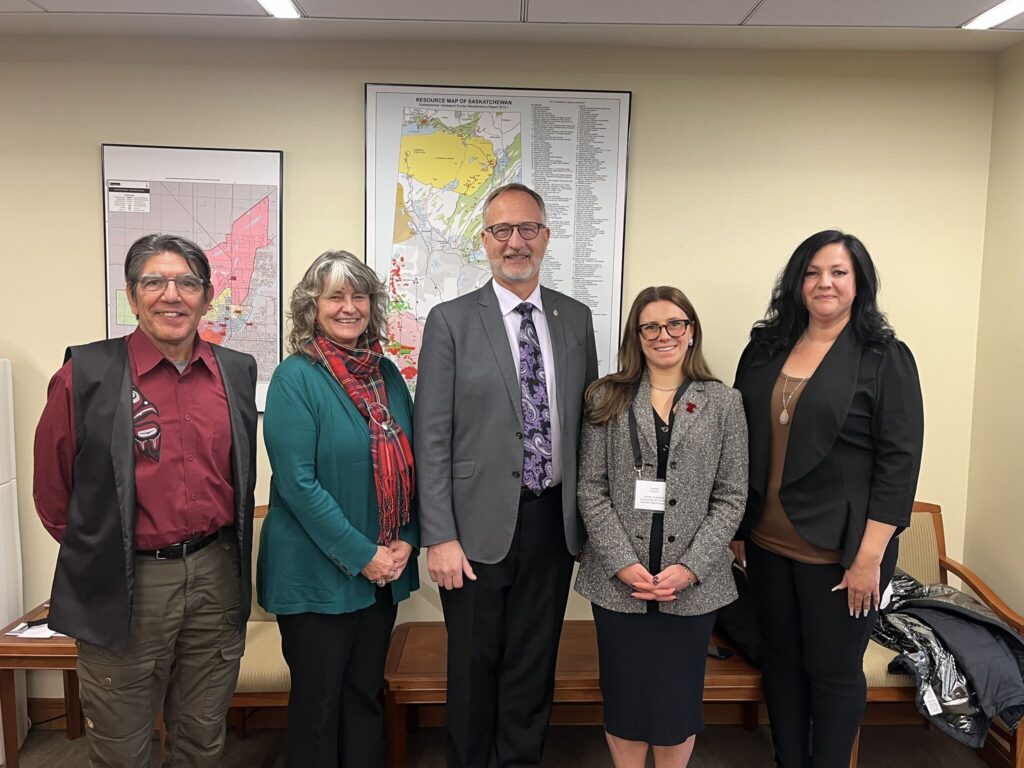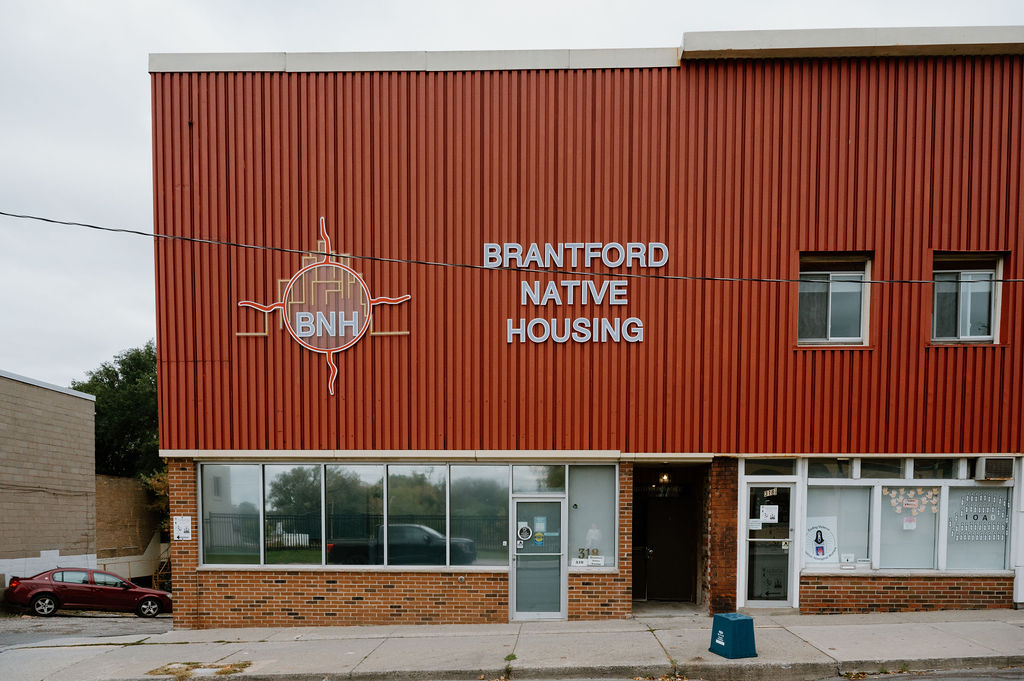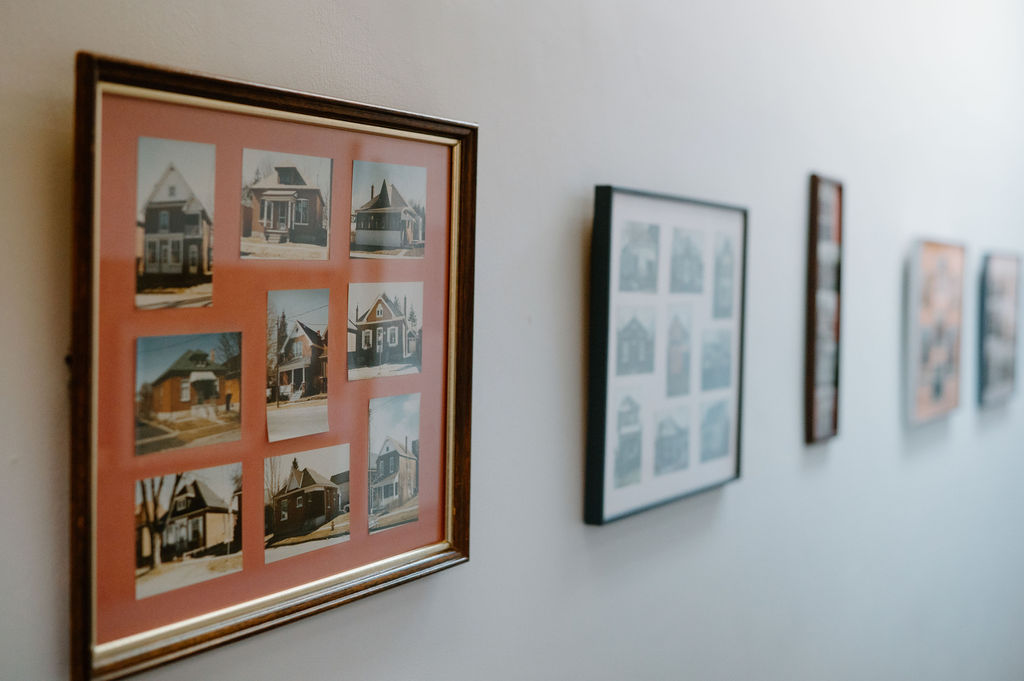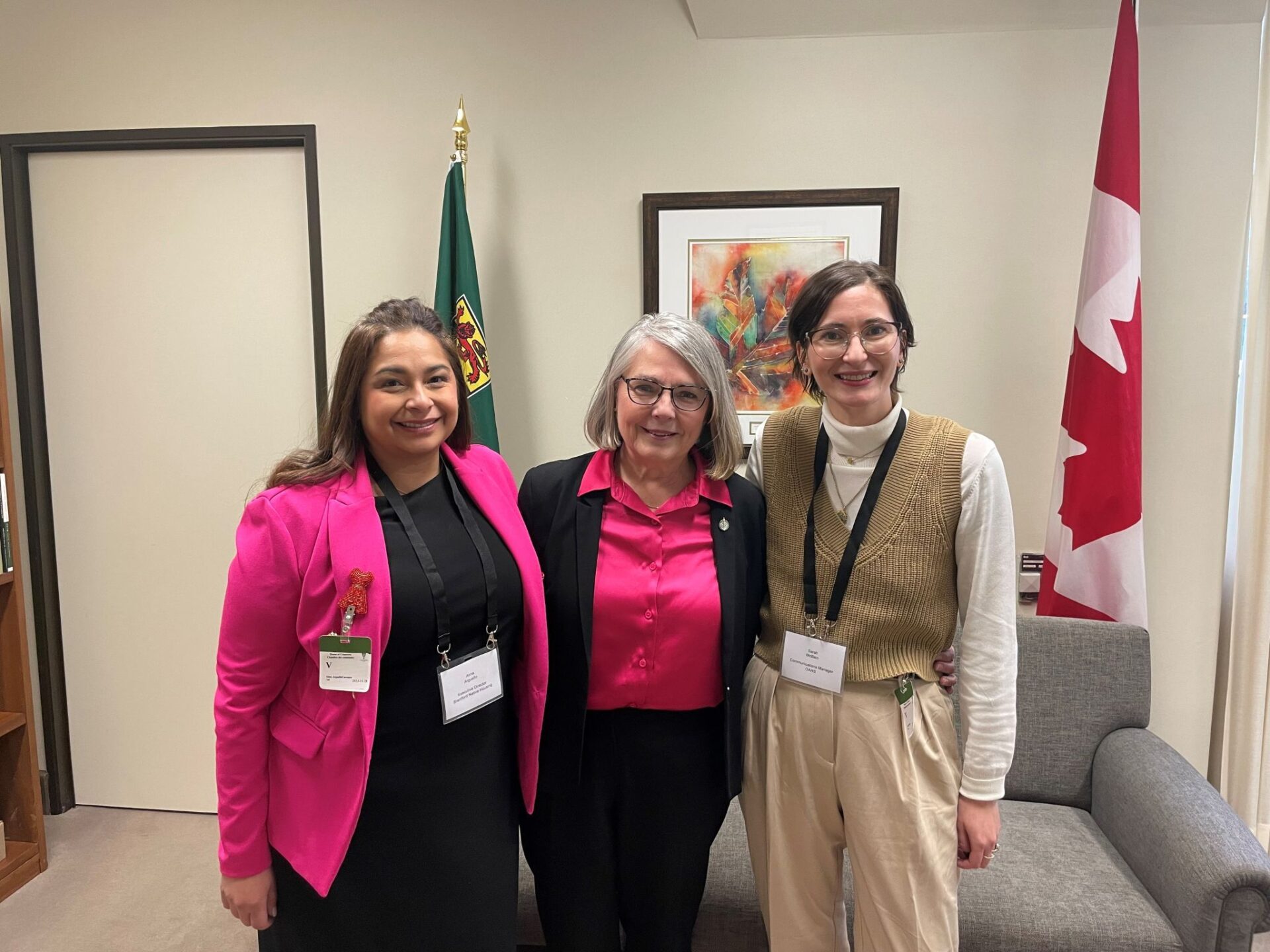Brantford Native Housing (BNH), also known as Hotinohsioni Inc., is a non-profit charitable corporation with the main objective to provide safe, dignified and equitable housing, as well as programming options for the urban and rural Indigenous community within the City of Brantford and the County of Brant.
The Indigenous-led agency currently operates a total of over 180 units of transitional, affordable and market-level units across Brantford, as well as second stage housing for women (with or without children) youth, men and families.
Despite its success of helping to move people from living on the streets and into transitional housing over the last 38 years, BNH understands that the community and its needs have been incrementally getting worse.
“Our PiT Count [Point-in-Time Count, which is the number of surveyed individuals experiencing homelessness at the current time] showed that in 2021, over 35 per cent of the unhoused population in Brantford, identified as Indigenous,” said Arguello. “In 2023, that number is now over 52 per cent and to put that in perspective, only five per cent of Brantford’s population identifies as Indigenous. We have a crisis happening in our community.”
Arguello said that BNH had hoped to continue to better service the community, specifically the women and children experiencing domestic violence.
“Yes, we have a level of transitional housing, but we don’t have it for women and children escaping violence. Right now, our transitional housing is there if people need it but sometimes women and children who are coming from trauma, need other and different types of support and healing services because their path is completely different,” she said. “Someone who may be homeless needs a place to stay and has different life skills that they have to work on, but for those escaping violence and who need second stage housing, the healing journey towards being ‘okay’ is completely different than for you or me, or even the other tenants we have.”

In order to better support those who are experiencing domestic violence, and because BNH doesn’t have the funding to simply purchase new land, the organization had plans to demolish its 309 Campbell St. eight-unit facility and rebuild a brand new ten-unit facility.
“We wanted to have an office in there to run healing circles, counselling sessions, conversational circles and have one-on-ones to be able to follow the women as they went through their own healing process,” said Arguello. “It was also going to be a place for Two-Spirited folks escaping violence because we don’t have one in Brantford and there is such a high need. So, unless they stay in Toronto, which we know for a fact, Two-Spirited people have one of the highest human trafficking numbers, and often experience high levels of gender-based violence, there isn’t a place for them to go in the area.”
However, altering the property isn’t simple and comes with a hefty price tag. Being a non-profit organization, and the only urban Indigenous housing provider in the city, means that BNH has to rely on applying for funding to complete a project like this.
“In the fall of 2021, the Canada Mortgage and Housing Corporation (CMHC) asked us to apply for its Co-Investment Woman and Children (W&C) Shelter and Transitional Housing Program to build units,” said Arguello. “If we could get the CMHC funding, then it would allow us to build the ten units on that particular property.”
Arguello and the BNH team went ahead and submitted the application in November of 2021, however, were denied in March of 2022 due to various reasons, including several changes to the CMHC’s own application requirements.
“They encouraged us to re-apply and we submitted another application for W&C Co-Investment Fund around November of 2022,” she said. “The City of Brantford had provided letters of support and confirmed that they provided BNH with subsidies, and we also had letters of support from other members of the community.”

The executive director said that during the second application process, she was remaining hopeful that things would work out as CMHC ensured BNH that the application was strong and continued to ask for more information.
Come March 2023, BNH was told that the Steering Committee within CMHC had decided to put BNH’s application on hold.
On November 28, 2023, Arguello and Danielle Russell, Director of Capital Development and Innovation for BNH, attended Housing on the Hill Day in Ottawa to meet members of Parliament to discuss the lack of housing for the Indigenous community.
After a meeting with Larry Brock, MP for Brantford-Brant, the parliamentary representative brought the topic forward during the day’s questioning period.
“…The demand for housing for urban Indigenous people in Brantford-Brant and across this country has reached a crisis, and this will continue to compound by the lack of second-stage housing for women and girls and Two-Spirited indigenous peoples,” he said. “This alarming situation is a direct consequence of the inadequate awareness and funding extended to urban Indigenous communities. Immediate action is imperative. In recognition of Housing on the Hill, I rise today to demand that the government prioritize Indigenous housing. It is time for urban Indigenous communities to receive a spot at the table and the funding they urgently require.”
Fast forward to January 2024, CMHC informed BNH that once again, the application was denied.
“Danielle found the letter stating that while our application was very strong and there was a clear need in the community, CMHC had essentially already allocated too many projects in Ontario and wanted other provinces to apply. It was frustrating because we had still had so much hope,” she said. “They could have let us know beforehand that there was a cap for Ontario funding so we could have applied for other types of funding for that land while we waited.”
Arguello said that the news was defeating not only for her, but ultimately for the urban Indigenous peoples of Brantford-Brant, especially as things in the community continued to get worse during that period.
“Since January 2022, we have had 28 women gone missing due to homelessness, hidden homelessness and or encampments that could have been eligible for this program. We also had ten women murdered by the hands of intimate partners and five others who were pregnant, that’s 43 Murdered and Missing Indigenous Women (MMIW) cases. How many buttons and alarms does the urban Indigenous community in Brantford need to sound, to show that we need a facility for them to go to?” she said. “We understand they have met the cap for Ontario, but why didn’t you say that to us in 2022 or 2023? Why are you telling me this in 2024? They could have even said ‘you’re not going to get it because you’re a housing service provider’ and we would have worked with our shelters here in town. With their expertise, I think we would have had an amazing, robust program where our urban Indigenous community could have a safe space to be in.”
Brantford Native Housing is now searching for clear answers.
“We aren’t going to get funding for everything, but I don’t like the inconsistency because every time I question CMHC, it’s like they are grasping at straws. I asked them ‘who is this Committee and what is the makeup?’ I don’t care about names, I really don’t, I care about the fact that throughout this process, the Committee changed their minds on the original process that the CMHC had originally outlined,” she said. “First it was because we were a housing provider, then it was because we ‘didn’t have experience,’ despite us running transitional housing for the past 20 years. Then we didn’t have referrals and finance requirements, and now it’s because they have met their quota. This type of inconsistency is what continues to harm our urban Indigenous community here in Brantford, and as drivers of a system that continues to show its ugly head of oppression, this continues to put our women and children in harm’s way.”
Arguello said that since November, she has sent letters to Sean Fraser, Minister of Housing, Infrastructure and Communities of Canada, and asked him to look into the Steering Committee and its process.
“We have asked Minister Fraser repeatedly; I have handed my letter to his aide, I have sent that letter to Minister Patty Hajdu (Minister of Indigenous Services of Canada), Pam Damoff (previously part of the Canadian House of Commons’ Standing Committee on the Status of Women), Karina Gould (Leader of the Government in the House of Commons of Canada), Anita Anand (president of the Treasury Board) all just to try and get a hold of Minister Fraser and we have heard nothing.”
Arguello and the BNH team want an official inquiry into the matter.
“We just want Minister Fraser to understand our issue, talk to us, and check out the application so we can get some answers that make sense. I want to know if CMHC had a quota for on-reserve and a quota for off-reserve, because if so, that’s not fair,” she said. “This focus on on-reserve housing has resulted in a lack of attention, funding and support for the housing needs of urban and rural Indigenous individuals. I understand our community needs are completely different and the building in Ontario is completely different than the price of building in the north, but we have the largest off reserve population and at the same time, we have the largest homelessness and addiction population crisis.”

After submitting six funding applications (two of which were successful pre-development grants) for the 309 Campbell St. property since 2021, BNH is now searching for other funding sources including another Co-Investment Fund through CMHC, and through the National Indigenous Collaborative Housing Inc.’s (NICHI) Capital Development funding to ensure the project gets built.
Until they receive adequate funding, the BNH team intends to continue to advocate for the city’s urban Indigenous housing needs.
“With a total of 669 applicants (including children) waiting for BNH housing units, it signifies a demand that exceeds our current capacity by nearly four times,” said Russell. “If we were table to secure funding and develop a 12-unit build at 309 Campbell St., we would be able to alleviate our housing wait and unit requests in 2024-2025 by almost 30 per cent as BNH will be able support roughly 30-35 community members based on the family composition in the future housing facility.”
Arguello said that when it comes down to it, her ultimate goal is to provide a safe space for the urban Indigenous population and their children.
“We know for a fact that a house is a social determinant of health, and it affects every member of the family in that home,” said Arguello. Living in subpar conditions with overcrowding and damages, is not a great home for a child and yet this is the reality that a large number of our urban Indigenous community has to live in. For kids, it does affect how you perceive yourself at school and it can affect the overall component of who you are.”
Arguello said she intends to do everything she can to ensure a stable future for the children living in BNH homes.
“Personally, I don’t want the kids currently living in our homes to be our clients again and I’m going to work very hard to at least give some of these kids a good place to live with dignity and pride. I want to be able to give them continuity because various pediatric studies continue to show that the more that you move around, it can affect a kid’s development in school and their social components because of the stress associated with moving and reinventing yourself. I don’t want that for them, I want them to be able to say ‘I grew up in a BNH home and it gave me the opportunity to do this or that’ or ‘my parents eventually owned a BNH home.’”
Kimberly De Jong’s reporting is funded by the Canadian government through its Local Journalism Initiative.The funding allows her to report rural and agricultural stories from Blandford-Blenheim and Brant County. Reach her at kimberly.dejong@brantbeacon.ca.
